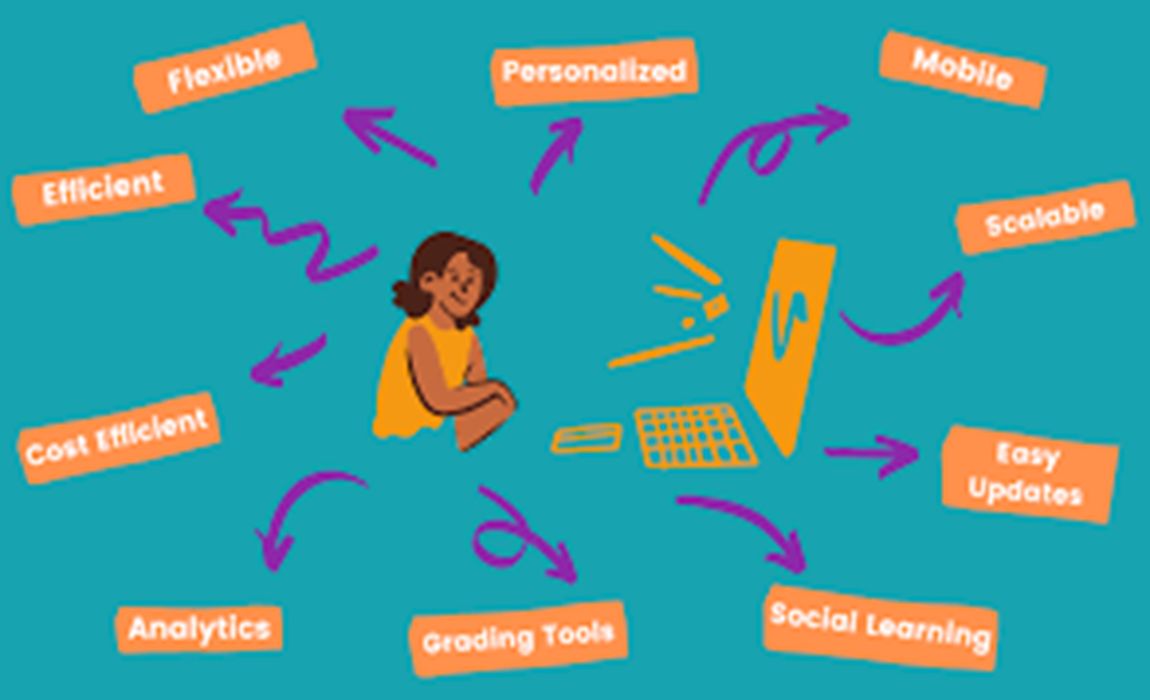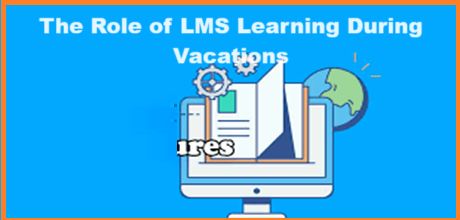The Role of LMS Learning During Vacations in the ever-evolving landscape of education, the use of Learning Management Systems (LMS) has become integral to modern pedagogy. While traditionally, vacations have been seen as a break from formal learning, the advent of LMS platforms has reshaped this perception, allowing for continuous learning even during these periods. This article explores the multifaceted role of LMS learning during vacations, highlighting its benefits, challenges, and the potential it holds for students, educators, and parents alike.
Bridging the Learning Gap
One of the primary advantages of LMS learning during vacations is its ability to bridge the learning gap. The extended breaks in the academic calendar often lead to a phenomenon known as the “summer slide,” where students tend to forget some of the knowledge and skills acquired during the school year. LMS platforms can mitigate this by providing structured and engaging learning activities that keep students intellectually active. Through interactive modules, quizzes, and gamified learning experiences, students can reinforce their understanding and retain critical concepts.

Personalized Learning Experiences
LMS platforms offer a level of personalization that is hard to achieve in traditional classroom settings. During vacations, students can explore subjects of interest at their own pace, tailoring their learning experiences to suit their individual needs and preferences. This self-directed approach fosters a sense of autonomy and encourages a lifelong love for learning. For instance, a student interested in coding can take advanced programming courses, while another passionate about history can delve into specialized topics not covered in the standard curriculum.
Flexibility and Convenience
The flexibility and convenience offered by LMS platforms make them ideal for vacation learning. Students can access course materials, assignments, and assessments from anywhere, at any time, using a variety of devices. This flexibility is particularly beneficial for families who travel during vacations, as it ensures that learning is not disrupted. Moreover, the asynchronous nature of many LMS activities allows students to manage their time effectively, balancing educational pursuits with leisure and family time.
Enhancing Skills and Enrichment
Vacations provide an excellent opportunity for skill enhancement and enrichment beyond the confines of the traditional curriculum. LMS platforms host a plethora of courses ranging from creative writing and digital arts to entrepreneurship and financial literacy. Engaging in these courses during vacations enables students to develop new skills and interests that can complement their formal education. Additionally, these enrichment activities can boost students’ confidence and motivation, preparing them for future academic and career challenges.
Supporting Educators and Parents
LMS learning during vacations is not just beneficial for students; it also supports educators and parents. Teachers can use LMS platforms to assign preparatory or remedial work, ensuring that students are ready for the upcoming school term. They can also monitor students’ progress and provide feedback, facilitating a continuous learning loop. For parents, LMS platforms offer a transparent view of their children’s learning activities, allowing them to be more involved and supportive in their educational journey. This collaborative approach strengthens the home-school connection, fostering a supportive learning environment.
Addressing Challenges
While the benefits of LMS learning during vacations are substantial, there are challenges that need to be addressed. One significant concern is the issue of digital divide. Not all students have equal access to the internet and digital devices, which can create disparities in learning opportunities. To combat this, schools and communities must work together to provide resources and support for underprivileged students. Initiatives such as lending programs for devices and providing affordable internet access can help bridge this gap.
Another challenge is maintaining student motivation. Without the structure of a traditional classroom, some students may struggle to stay engaged and motivated. LMS platforms must incorporate elements of gamification, interactivity, and real-world relevance to keep students interested. Moreover, educators and parents should set realistic goals and provide encouragement to help students stay on track.
The Future of Vacation Learning
The role of LMS learning during vacations is poised to grow as technology continues to advance and educational paradigms shift. The integration of artificial intelligence and machine learning into LMS platforms can further personalize learning experiences, providing real-time feedback and adaptive learning pathways. Virtual and augmented reality can create immersive learning environments, making education during vacations even more engaging and effective.
Furthermore, the concept of lifelong learning is becoming increasingly important in today’s rapidly changing world. LMS platforms can play a crucial role in fostering this mindset by providing continuous learning opportunities beyond the traditional school calendar. By embracing LMS learning during vacations, students can develop the skills and knowledge necessary to thrive in an ever-evolving global landscape.
Conclusion
LMS learning during vacations offers a transformative approach to education, bridging the learning gap, providing personalized and flexible learning experiences, and supporting skill enhancement and enrichment. While challenges such as the digital divide and maintaining motivation need to be addressed, the potential benefits far outweigh the drawbacks. As technology continues to evolve, LMS platforms will play an increasingly vital role in shaping the future of education, ensuring that learning is a continuous, engaging, and enriching experience for students, educators, and parents alike.

cunqbb
wsapdt
Its great as your other content : D, appreciate it for posting.
5j1xrj
Platform Slot Gacor yang Membayar Besar dan Tepat Waktu, hanya di SIGMASLOT
I simply wanted to construct a brief remark to be able to express gratitude to you for those lovely facts you are showing at this site. My considerable internet research has now been honored with reliable details to share with my guests. I ‘d suppose that we website visitors actually are extremely blessed to be in a useful community with many perfect people with interesting concepts. I feel very lucky to have encountered the site and look forward to so many more awesome times reading here. Thank you once again for everything.
This is the suitable blog for anybody who needs to find out about this topic. You notice so much its nearly exhausting to argue with you (not that I really would need…HaHa). You definitely put a new spin on a subject thats been written about for years. Great stuff, just great!
I have not checked in here for a while since I thought it was getting boring, but the last few posts are great quality so I guess I?¦ll add you back to my everyday bloglist. You deserve it my friend 🙂
I’ve been surfing online more than 3 hours nowadays, yet I by no means found any fascinating article like yours. It¦s beautiful value enough for me. In my view, if all site owners and bloggers made good content as you did, the net might be a lot more useful than ever before.
You got a very superb website, Gladiola I found it through yahoo.
It?¦s in reality a great and helpful piece of info. I?¦m happy that you simply shared this useful information with us. Please keep us informed like this. Thanks for sharing.
Lovely website! I am loving it!! Will come back again. I am bookmarking your feeds also
Unquestionably believe that which you stated. Your favorite justification seemed to be on the internet the easiest thing to be aware of. I say to you, I certainly get irked while people consider worries that they plainly do not know about. You managed to hit the nail upon the top and defined out the whole thing without having side effect , people could take a signal. Will probably be back to get more. Thanks
An impressive share, I just given this onto a colleague who was doing a little analysis on this. And he in fact bought me breakfast because I found it for him.. smile. So let me reword that: Thnx for the treat! But yeah Thnkx for spending the time to discuss this, I feel strongly about it and love reading more on this topic. If possible, as you become expertise, would you mind updating your blog with more details? It is highly helpful for me. Big thumb up for this blog post!
Great write-up, I am normal visitor of one’s blog, maintain up the nice operate, and It is going to be a regular visitor for a long time.